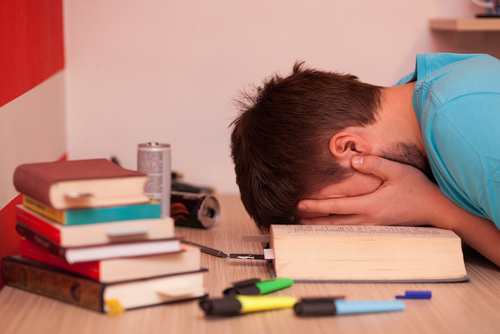Just How Anxious are Kids Today?

We discuss often the amount of stress and anxiety adolescents and teens are facing today. Mental health disorders are developing at younger ages, substance use disorders are developing at younger ages, and our children seem to be struggling. Many parents shrug off the idea of stress sitting on their children's shoulders. How stressed could children today possibly be? Changing economic structures, environmental structures, political circumstances, cultural circumstances, and more are proving to be challenging for young people to cope with.
The
Journal of Personality and Social Psychology
published two studies that analyzed a tremendous amount of data starting from the 1950s. Children and college students were examined for levels of anxiety. The comparison between children in previous decades to more recent decades are astonishing. What was considered a level of anxiety necessitating psychiatric care for children in the 1950s was the average experience of anxiety in everyday schoolchildren of the 1980s, according to the American Psychological Association.
Anxiety can take two different forms. Children are experiencing more of the kind of anxiety that persists rather than the kind of anxiety that passes. Anxiety which is fleeting is not often a cause for concern- most people experience this kind of anxiety. However, anxiety which is persistent is a reason to worry, so to speak. People who experience anxiety are more likely to experience physical health issues which can pose a threat to their longevity and overall health.
What is threatening children's emotional stability is equally concerning. Social connectivity and environmental factors are causing a greater level of distress to today's children. Though social connections have risen, the APA points out, there are still high amounts of feeling lonely. Isolation is a risk to anyone, especially children. Recovery is often suggested to take place in a residential treatment facility so that children can be among peers. During the treatment process, adolescents and teens are educated about the dangers of isolating, how to prevent isolation, and what to do during times of isolation.
Anxiety and high amounts of stress are cautioned against in adults. Parents should heed the warning tenfold when it comes to their children. Mental health disorders like anxiety disorders have high co-occurrences with substance use disorders. Knowing and understanding your child's anxiety can help you plan early prevention/intervention for substance abuse.
Stonewater Adolescent Recovery Center is a residential treatment facility for adolescent and teen males struggling with substance use disorders. Call us today for information on our long-term programs and academic support. 662-598-4214.

.jpg)

